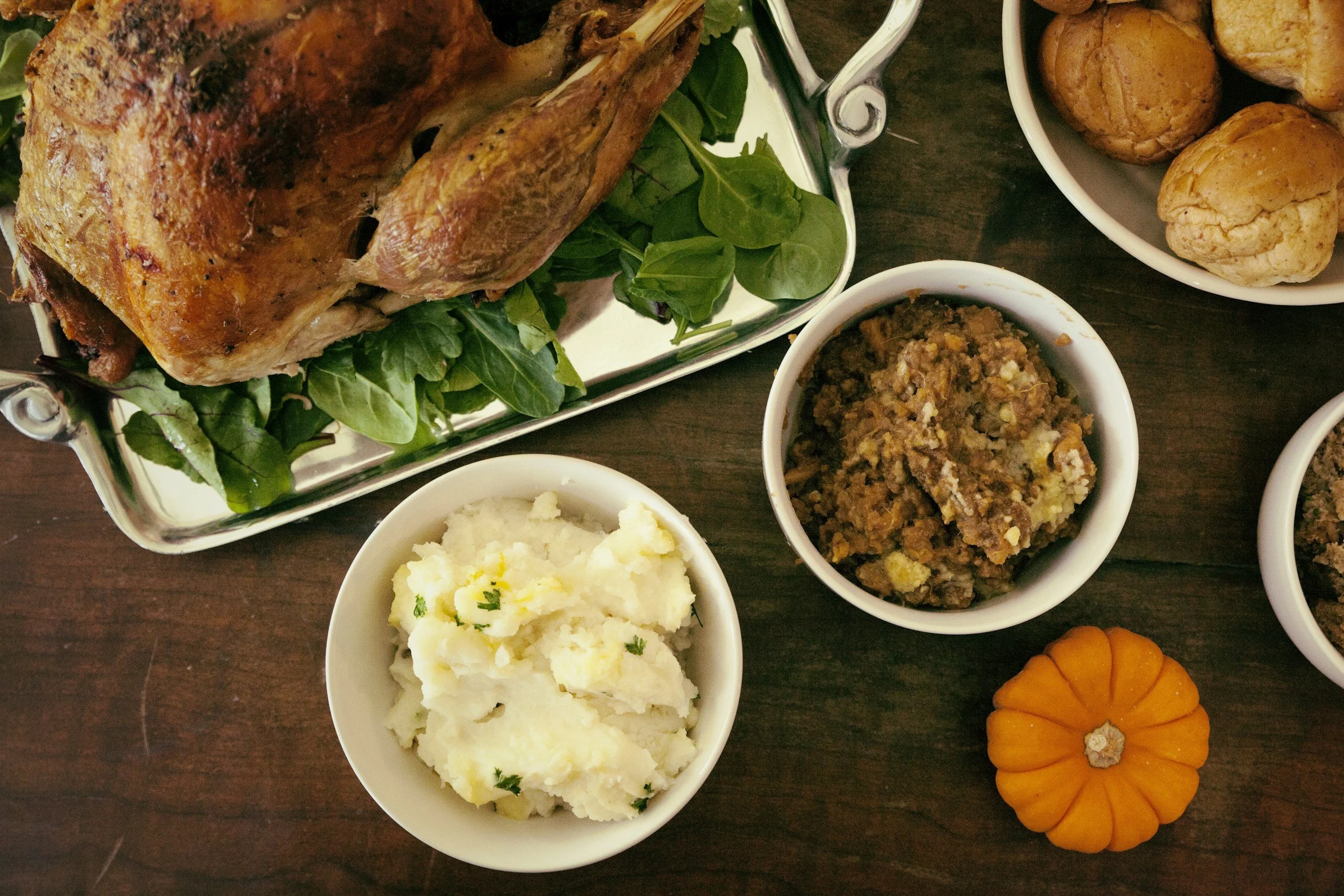SZN. 4 Ep. 2/ Mindful Eating vs. Food Guilt
Mindful Eating vs. Food Guilt
By: Alexandria Gohla, MSW, LCSW, Ed.S
The holiday season often comes with family gatherings, shared meals, and endless spreads of rich food. While these moments can be joyful, they can also trigger stress and guilt for many people. Culturally, November kicks off the annual cycle of “holiday indulgence” followed by “New Year’s restriction,” creating a mindset that eating is a moral issue — one where some foods are “bad” and others are “good.”
This mindset can fuel a cycle of shame and guilt around eating, rather than allowing food to be what it really is: nourishment, connection, and sometimes even celebration.
The Psychology Behind Food Guilt
Research shows that food guilt is deeply tied to diet culture and perfectionism. A study published in Appetite (2014) found that participants who associated chocolate cake with guilt (rather than celebration) were more likely to experience less healthy eating behaviors and less consistent weight management over time. In other words — guilt around food didn’t make people healthier. It actually had the opposite effect.
When we eat with shame, our bodies stay in a state of stress (think clenched jaw, tight stomach, racing thoughts). This activates the sympathetic nervous system (“fight or flight”), making digestion more difficult and reinforcing the belief that eating is something dangerous or wrong.
Mindful eating offers another way: bringing awareness, compassion, and presence back into the act of nourishing ourselves.
What is Mindful Eating?
Mindful eating isn’t about what you eat — it’s about how you eat. It’s rooted in mindfulness, the practice of nonjudgmental awareness of the present moment.
Key elements of mindful eating include:
Eating with curiosity instead of judgment
Paying attention to hunger and fullness cues
Engaging the senses (taste, smell, texture) while eating
Noticing the emotions and thoughts that come up around food
This practice has been linked to reduced binge eating, less emotional eating, and improved body satisfaction (Journal of Behavioral Medicine, 2014).
How to Navigate Holiday Meals Mindfully
Here are some strategies to help reduce food guilt and stay grounded during the holidays:
1. Pause Before You Eat
Take a few deep breaths and notice how hungry you are on a scale of 1–10. This helps you tune into your body instead of defaulting to autopilot.
2. Serve a Balanced Plate Without Rules
Rather than categorizing foods as “good” or “bad,” allow yourself a mix of protein, carbs, veggies, and yes — dessert if you want it. Flexibility reduces the likelihood of overeating from restriction.
3. Slow Down and Savor
Put your fork down between bites. Notice the texture, flavors, and warmth of the food. This simple act improves digestion and helps you recognize when you’re satisfied.
4. Practice Gentle Self-Talk
If you catch yourself thinking, “I shouldn’t eat this” or “I’ll regret this later,” reframe with compassion: “I’m allowed to enjoy food. My worth is not tied to what’s on my plate.”
5. Notice Emotional Triggers
Holiday meals often come with comments from relatives about weight or food. Plan your responses ahead of time (e.g., “I’d prefer not to talk about diets today”). Protecting your emotional space is part of mindful eating.
6. Ground Yourself Somatically
Try a body-based reset before or after a meal:
Place one hand on your stomach and take three deep breaths.
Stand up and shake out tension in your shoulders and arms.
Step outside for a quick sensory reset if overwhelm builds.
7. Practice Gratitude Without Pressure
Instead of forcing yourself to feel thankful (which can backfire), try noticing one simple thing you appreciate about the meal — the smell of cinnamon, the laughter at the table, or even just the chance to pause your workday.
When to Seek Support
If guilt around food feels overwhelming or if you notice patterns of bingeing, restriction, or constant anxiety around meals, it may be helpful to talk with a therapist trained in mindful eating, intuitive eating, or somatic therapy. Support can help you rewrite the story you tell yourself about food and reclaim peace with your body.
This holiday season, give yourself the gift of presence instead of pressure. Food doesn’t have to be a battlefield. Start small: choose one meal this week to eat slowly, without judgment, and notice how it feels.
If you find that food guilt or body shame is interfering with your daily life, you don’t have to navigate it alone. At Bluebird Counseling Services, we specialize in helping clients build healthier relationships with food, their bodies, and themselves. Reach out today to schedule a consultation — your healing can begin with the very next meal.


